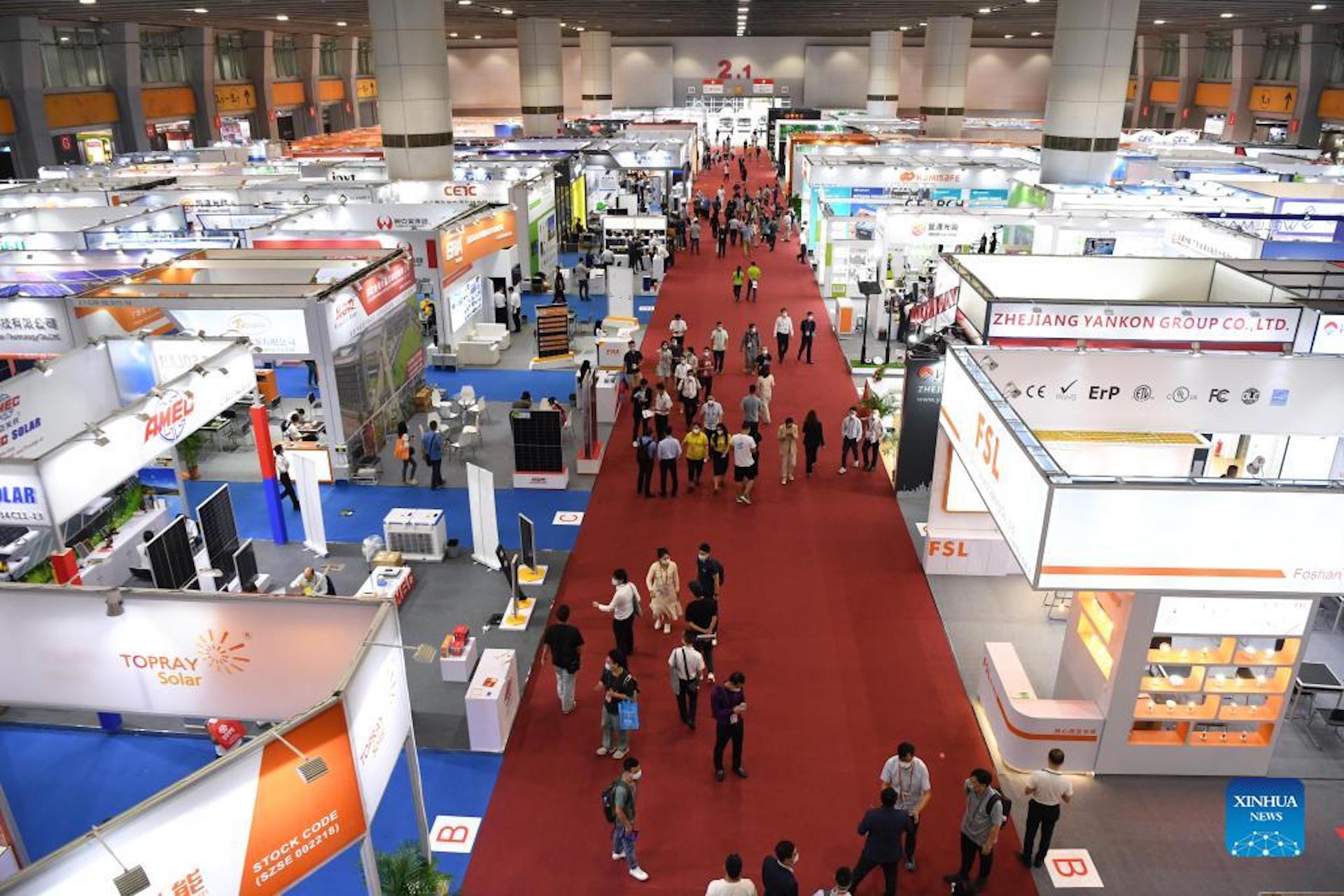The government showcases carbon policies at the Canton Fair
With 25,000 exhibitors, this year’s online event had an underlying theme: Carbon neutrality.

The China Import and Export Fair, also known as the Canton Fair, has allowed Chinese companies and state-owned factories to show off their goods twice a year since 1957. It opened for the 131st time today, but online only because of COVID-19.
25,000 overseas and domestic exhibitors are taking part. This year’s event includes a zone dedicated to a pet project of Xí Jìnpíng 习近平: “Rural Vitalization.” The zone features 974 exhibitors from formerly poor areas of China who will present 2.9 million exhibits, including 480,000 green and low-carbon products.
2021 was the first year of China’s “double carbon” objectives — proclaimed by Xi Jinping at the United Nations General Assembly in September 2020 — of reaching peak carbon use in 2030 and carbon neutrality in 2060. “Double carbon” has since provided a slogan and a direction for Chinese government organizations and the private companies that seek to capitalize on government plans:
China’s banks have actively increased their green credit for low-carbon projects. The banks’ 2021 annual reports reveal that green credit is the fastest growing type of credit, increasing by more than 30% at the six major banks; ICBC 工商银行 alone extended green credit of 2.4 trillion yuan ($376.51 billion).
- The Beijing branch of Bank of China 中国银行 actively supports the construction of “green Beijing” with a green credit balance in excess of 170 billion yuan ($26.66 billion), and the bank supports green projects in countries along the Belt & Road, such as Xinjiang Goldwind Science & Technology’s 金风科技 wind turbine project in Argentina.
China news, weekly.
Sign up for The China Project’s weekly newsletter, our free roundup of the most important China stories.
The chairperson the State Power Investment Corporation 国家电力投资集团公司 announced last week that clean energy such as hydrogen production is now the main development direction of the SPIC.
New technology startups have appeared on the stage such as Wuhan Juyuan Technology 武汉聚源科技, a producer of environmentally friendly and degradable materials, which today announced the completion of an angel round of investment of 20 million yuan ($3.13 million).
The context: With the main goals of increasing non-fossil energy consumption, improving energy utilization efficiency, and reducing carbon emissions, implementation of the “double carbon” policy seems to have begun in earnest:
- Various plans are being released for key areas such as energy, industry, construction, and transportation; as well as key industries such as coal, electricity, steel, and cement.
- The government is promoting a range of green technologies such as wind turbines, solar panels, new energy vehicles, green building construction, and energy-saving products.
- The government is supporting carbon financial product innovation, including carbon-neutral bonds and a carbon neutral index on the Shanghai Stock Exchange.
The takeaway: The implementation of “double carbon” implies the gradual withdrawal of traditional energy systems and their replacement by new energy, but this is a long and arduous process of radical change that will require sustained commitment.
There is no way that China will quickly end its reliance on fossil fuels, particularly coal, which is its most abundant and cheapest energy source. For the foreseeable future new and traditional energy will coexist.






